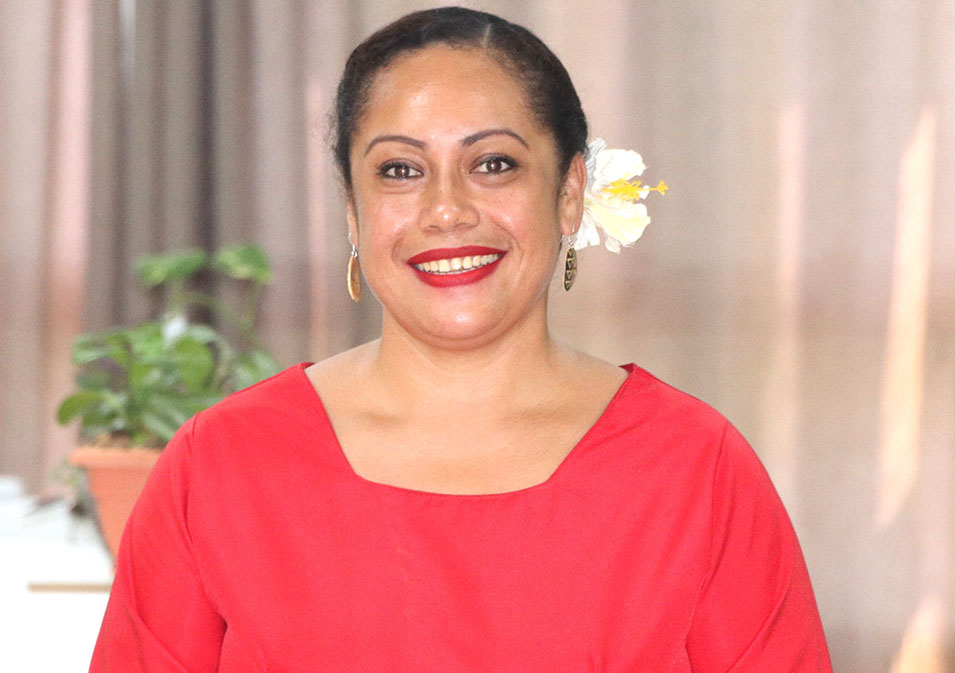
For Melenaite Esera, her decision to pursue a Bachelor of Arts with a double major in Linguistics and Geography wasn’t just a love for language and places but a deep curiosity about the world and the people who share it.
Hailing from the village of Pili, Ma’ufanga, in the Kingdom of Tonga, Esera grew up in a supportive community that values hard work and culture.
Growing up, she was always fascinated by maps and languages. She often found herself flipping through atlases and mimicking different languages she heard on television and through music.
During her high school years at Tonga High School, her Geography and English teachers noticed her passion for both fields and encouraged her to pursue them further.
“They both challenged me to think about how language and space shape culture, identity and access,” she said.
“At that moment, I realised that combining the two fields would allow me to not just study how people communicate, but also study why and how those communication patterns vary across regions, borders and communities.”
A pivotal moment that sparked this passion was when Esera attended a regional church youth conference in Fiji, where she noticed participants seamlessly switching from speaking local dialects and foreign dialects.
“During the conference, I was so intrigued by how they shifted effortlessly between languages and how their speech reflected the places they came from.”
This experience led Esera to develop a strong academic interest in finding the connection between languages, migration, culture and the environment.
As a third-year student, one of the highlights of her academic journey at The University of the South Pacific is having the opportunity to learn in a diverse and regional environment.
“USP brings together students from across the Pacific, and that cultural richness has really expanded my understanding,” she shared.
“I’ve enjoyed the way USP blends theory with real-world applications, and the way the content of the courses is tailored to the Pacific contexts, which makes learning more meaningful.”
Like many students, she faced the initial challenge of adjusting to online and blended learning. However, through determination, discipline and support from lecturers and tutors, she was able overcome these hurdles.
“Initially, it was difficult to stay motivated and manage my time without the structure of face-to-face classes. So, I had to develop a structured study routine to keep on track with assignments and exams.”
Ha’amonga Awards
Her hard work was recently recognised at the Ha’amonga Awards Ceremony at USP’s Tonga Campus, an achievement that she is grateful for.
“The award motivated me to continue striving for excellence and to maintain the same level of commitment in my studies.”
She credits much of her success to the constant support of God, her husband, family, mentors and peers, whose encouragement kept her going through the challenging times.
Upon finishing her degree, Esera looks forward to applying her knowledge and skills to her current role as a Senior Climate Change Community Liaison Officer.
“I’m particularly interested in opportunities that combine technical expertise with community impact, and I hope to continue learning, growing, and collaborating with others who are passionate about creating positive change,” Esera said.
Her message to other students is simple yet powerful: “Believe in yourself, stay focused. Education is more than just a degree; it’s about growth, perspective and making a difference.”
For her, being in USP is about being part of a larger Pacific community that values knowledge, collaboration and resilience.
About USP
Interested students can Apply Now for Semester 2 studies via www.usp.ac.fj/apply or visit the USP Tonga Campus.
New and continuing students are also encouraged to register for their courses online via https://studentsols.usp.ac.fj/
For further assistance, students can reach out via email to contactus [at] usp [dot] ac [dot] fj
--



